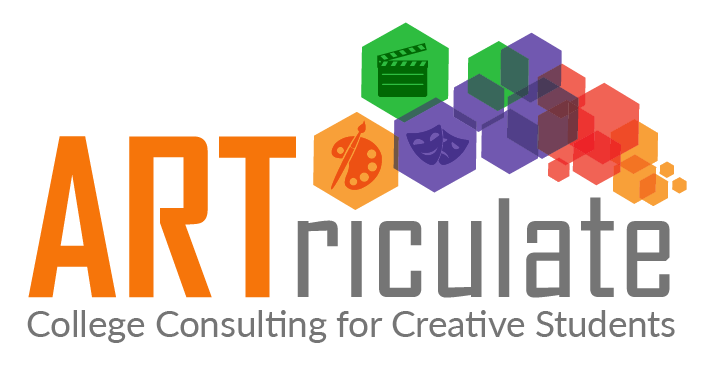12 Things Students Should Do Before The Semester Ends
Make sure your students do this before the end of the semester. Some are reminders specifically for Juniors to make their Senior year and college applications a bit easier, but truthfully, Sophomore items 1-5 apply to you too and will decrease your stress and increase your options as you start your college applications as well.
Review your transcripts BEFORE the end of the year to catch any mistakes. Make sure that grades are recorded correctly and that classes are correctly noted (honors, AP, IB, etc.) so they reflect the rigor of your coursework.
Photograph your work. Many times students forget to photograph their work, assuming it will be there when school starts in the fall. Don't rely on this, photograph it and bring it home. This holds for performing arts students as well, document and photograph work you do on spring performances, schools will want this for your creative portfolios.
Register now for any SAT/ACT exams you think you might want to take. They BOTH superscore and test prep experts say three is the magic number for achieving your best scores. So, if you intend to take the tests make your plan now. There are many free test prep apps to be had, some even text you a test question a day, an easy way to practice. While most colleges have already announced that they are test optional or test blind (check the list at www.fairtest.org) and the University of California system has announced they are not accepting test scores while Florida is requiring tests. While we don't know for sure as many schools haven't released their acceptance information anecdotally for selective schools we assume that students who submitted scores were more likely to be accepted than those who didn't. So, while schools are doing more holistic reads of applications, those applicants submitting scores may still have an advantage.
Keep your grades up, if you're a Junior this could be the last full semester your colleges will see, especially if you intend to apply early decision or early action which are due before first semester is over. If there's extra credit to be had to increase your grades find out about it and get it done. Also, participate in class and go to office hours. You still have time to make this semester's grades as good as they can be.
Plan your summer college tours. This year admissions tours are more limited and require the skills of a master Tetris player to orchestrate. If you are a creative student make sure to request a tour of the art facilities you're interested in, too often they are omitted from the general tour unless specifically requested. Start planning them now to reduce your frustration.
Juniors, ask for teacher recommendations BEFORE the end of the year. Find our how and when they like to be communicated with and get their email addresses. Some teachers only write recommendations during the school year, others prefer to write them over the summer, find out what they prefer and respect their timelines (while being a squeaky wheel is often a good thing, you don't want to be a squeaky wheel with your teachers). After you've talked with them send an email reminding them of what you intend to study, and of your accomplishments and participation in their classes so they can easily write a strong recommendation. Remember, while you think you are #1 in their mind, there are probably dozens of other students who think that as well.
Review the personal statement prompts. The Common Application prompts are the same as Fall 2021, and it is possible that the University of California personal insight questions will not change from last year either. Read the prompts and start brainstorming your essays. It often takes writing to two or three prompts before the essay solidifies, give yourself that time.
Research supplemental essays. It's likely that they won't change from last year and you can see past supplemental prompts from many schools, but ALWAYS check the prompts in August to be sure.
Research creative portfolio and audition requirements. Like supplemental essays, they probably won't change much (except for schools such as RISD which changes their "assignment" annually), make a list of the supplemental requirements for any schools to which you are likely to apply and start thinking about how you will respond.
Research scholarship dates. These are often earlier than application dates and are posted on college websites. If you intend to apply for school based scholarships know the requirements and the due dates.
Start a calendar to record due dates. Chose either paper or online and start entering due dates now. This includes application dates, test dates, scholarship dates, audition dates, etc. Using a calendar is an important executive function skill that will lead to success in college as well.
Families, schedule when and where you can discuss colleges. Know your student, some are happy to talk about college a lot, many aren't. If they're the latter agree on a time/place to discuss colleges and ONLY do it then/there, this makes for much better family peace and harmony.
Need help? Be in touch, here's my calendar, schedule an appointment to talk today.
